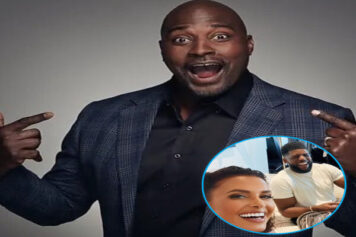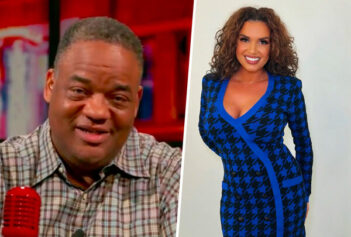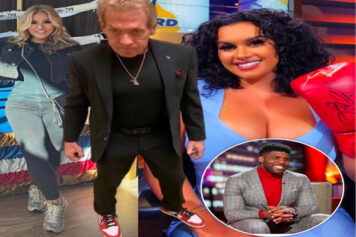Parents and coaches continue to react violently, treating youth sports like a professional league with huge money at stake.
On Saturday, 47-year-old Christopher Hooks, the father of a Paul Robeson High School basketball player from Brooklyn got so enraged about his son’s lack of court time that he went to coach Todd Myles’ home to confront him.
The hasty decision ended in bullets and both men being shot by a third man.
Prayers go out to Todd Myles. May he get well soon. Parents, if you’re unhappy with your child’s playing time, trying to confront the coach or pulling up to their home doesn’t help matters any. The best thing to do is pull them off the team.
— Dave's Joint (@daves_joint) December 25, 2018
According to the NY Post, “Hooks and his wife were angry over their son’s lack of playing time in a game a few days earlier and wanted to confront the 42-year-old coach, according to the sources.
The game took place last Tuesday, when Robeson lost to Westinghouse. When Hooks went to argue with the coach at his home, a third man arrived on the scene and started shooting, police sources said. It’s not clear why.
(That part of the story is confusing and has not been addressed yet. But the moral remains the same.)
Hooks was shot in the neck and Myles was grazed on his left leg. Hooks had to undergo surgery, the sources said.”
This is an unprecedented incident for the New York Public School Athletic League and an indication of how toxic youth sports is becoming.
“If this is what high-school sports has gotten to, it’s gonna scare a lot of people away from coaching,” a league source said.
“It’s sad that parents are losing their minds.”
We are increasingly hearing stories of parents and coaches reacting violently during youth games and treating youth sports like it’s a professional league with huge money at stake.
Youth baseball coach attacks parent in the stands with an aluminum bat 😱 https://t.co/KnLmytLvIG
— Athlete Swag (@AthleteSwag) May 7, 2018
It sounds laughable, but the increasing costs of youth sports has turned what was once stress free development time for young athletes into high intensity, high pressure activities in which parents get emotionally involved.
#StPaul parent attacks youth hockey coach in #InverGroveHeights: http://t.co/lA95kAis
— Maricella Miranda (@mariwritesnews) December 22, 2011
The business of youth sports –which includes everything from travel to private coaching to apps that organize leagues and live stream games–is now a $15.3 billion market, according to WinterGreen Research, a private firm that tracks the industry.
According to 2017 figures that WinterGreen provided exclusively to TIME, the nation’s youth-sports industry has grown by 55% since 2010.
With that growth has come a change in attitude towards youth sports by parents, coaches kids, youth leagues and predatorial entrepreneurs looking for the next big pay day.
The rise of AAU athletics has changed the game.
The influence of social media and the lure of pro contracts have given most parents a false sense of belief that their kid has a chance to go pro. If not pro, parents envision marketing their kids on social media and branding them for life. Many parents simply see athletics as their only way of getting college scholarships for their kids.
The incident in Brooklyn is an extreme example of how that culture has spilled into school sports. It also gives us a revealing glimpse into the pressure parents are feeling now at the youth sports level. The entire dynamic between the coach, player and parent is different.
https://twitter.com/hashNetworK/status/1003129267276967936
Myles was a star player on the Robeson’s 1994 city championship team. He’s been the basketball coach for over a decade, saving a program that was on the brink of destruction and plagued by discipline problems under its popular former coach, Lawrence Major, who committed suicide in 2005 at age 45 after being charged with statutory rape, accused of carrying on a three-year relationship with a student that started when she was 14.
Robeson’s hoops program has always been a point of pride for a struggling school surrounded by one of the thickest concentrations of public housing in the city.
Despite the surrounding environment, Myles never had to deal with a parent coming to his home to discuss school business. Hooks crossed a line that is understood to be a safe zone in such matters. Unless you’re invited, you don’t just show up at the coach’s house.
The shooting is also an example of how the politics in youth sports are out of control. We have fathers running teams that their sons play on, parents paying a grip to influence decisions on the court at an age when their kids should be earning playing time and creating friendships and learning about hard work, success and failure.
It’s all part of some twisted goal to get their kids ahead, but the positive message gets lost in the approach and the kid often ends up being adversely affected by it. The mixed messages are everywhere.
Kobe Bryant has already claimed his piece of the burgeoning youth sports industry.
A growing number of parents are blindly chasing a prize that is more of an illusion. We see kids increasingly reclassifying to gain an edge in the field and academically. We see coaches acting as CEO’s of major companies instead of cultivators of young minds. And for every success story, we see a trail of frustrated parents who are so misguided in their attempt to do well for their kids that it ends in tragedy.
https://twitter.com/sportsfansSFD/status/1069337387023691776
The shooting in Brooklyn isn’t the last of such incidents. It’s just the worst possible outcome.
As youth sports continues to transform into a lucrative, exploitative and disruptive landmine of fool’s gold, parents — many of whom have never played an organized sport in their life — will continue to do some crazy, violent things when the situation doesn’t go their way, because they have been convinced that the stakes are really that high.
The direction of the culture as youth sports evolves in America is a shame.



